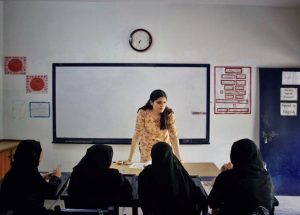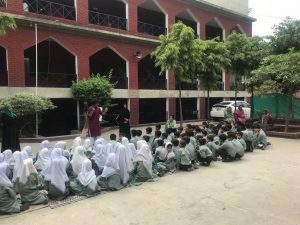 Home is wonderful as usual. I can finally sleep for more than three hours and my sustenance comprises of more than just junk food and coffee. My family doesn’t want me to go out in the scorching 110o F heat, but the work must go on. The first few days at home, I’m immensely pampered because absence makes the heart grow fonder, but that’ll wear off soon enough when they realize I’m here for the next four months. It’s time to start planning this project, and a lot needs to be done before we can physically make any progress.
Home is wonderful as usual. I can finally sleep for more than three hours and my sustenance comprises of more than just junk food and coffee. My family doesn’t want me to go out in the scorching 110o F heat, but the work must go on. The first few days at home, I’m immensely pampered because absence makes the heart grow fonder, but that’ll wear off soon enough when they realize I’m here for the next four months. It’s time to start planning this project, and a lot needs to be done before we can physically make any progress.
My project aims to implement an educational intervention within a slum neighborhood on the outskirts of Lahore, with the end goal being that those who are affected or at risk for metabolic diseases like hypertension and diabetes learn how to reduce the chances of a fatal outcome.
In order to identify the affected population, it is necessary for my team and I to first hold a basic medical health camp, which will be phase 1 of the project, and so much of the meetings in the coming days are dedicated to setting up this medical camp.
Something I knew going into this project was that I would not be able to do everything on my own, and so I contacted Next Generation Pakistan members to help me. It was so wonderful reconnecting with them, many of whom became my close friends in high school due to our commitment towards the same causes. It was quite easy to convince them to take up this project because one of their projects, called Quwat-e-Nisa, already focuses on increasing medical aid in impoverished communities and giving the women and children in these regions, a safe space to discuss diseases, illnesses and pains, that are otherwise left ignored by the males of the household upon whom they depend. This collaboration will help me a great deal because not only do I work really well with the volunteers of NGP, but also, more volunteers means we can have a more focused, but wider impact.
More than anything, I’m very excited to meet the people of Gohawa village. It’s been six months since I’ve been to the School of Sciences, the local trust school in the area, and it’s always a pleasure reconnecting with the students and their families. We exchange stories and they’re always keen to learn more about the world around them. It’s refreshing to see people, who are surrounded with so many other problems, with a passion to acquire new information and learn about the world. It’s this same passion and vigor that makes me confident that they’ll welcome the educational sessions and prevention and symptom reduction methods that we impart to them.
A part of me is afraid, however, that regardless of my longstanding presence in the community, the people will still be distrusting of us and the doctors we bring along, simply because the essence of this project revolves around the very sensitive issue of health. In order to solve this problem, my team and I plan on talking to a team of medical experts at a pre- existing medical center located near the region, run by an international organization called TABA. TABA has organized medical camps in Gohawa before, and therefore, people do trust them because of the benefit they derived from it. Familiar faces in this case will help to communicate better with the people. Secondly, School of Sciences serves as a central institution that most people look towards as symbol of help and progress, especially because most of the neighborhood children who do study, go to school there. My team and I will ensure that this school plays a central role in the multiple phases of this project, perhaps as a site of action. The involvement of this school in this project will go a long way in increasing participation and response from the Gohawa community. Getting the school on board won’t be a tough task in my opinion, considering that the school has always tackled issues that extend far beyond just education. The school is meant to be a positive force in the slum community and always welcomes any ideas that uplift the community as long as the means to do so are introduced by external forces due to limited faculty bandwidth and resources.
After careful thought and consultation with my team, we have concluded that phase 1 of the project will involve setting up a basic health unit with the assistance of medically certified doctors. A very precious quality within Pakistani people is their desire to help out in whatever capacity they can, and so convincing the doctors to provide services gratis did not take much more than appealing to their moral conscience and the positive impact they would be bringing about. This medical camp will serve as the first phase to identify pre-hypertensive, hypertensive, pre-diabetic and diabetic patients, who will be prescribed proper medicines, based on the need of the patients, by the certified doctors. In other words, instead of referring them to a clinic that they may not go to due to transportation problems and financial burdens, we are bringing the clinic to them. These same people will also be asked to join us for phase 2, which will be conducted within the school, soon.
The next two weeks will be pretty hectic, with numerous emails needing to be sent out, multiple meetings to be held and a number of collaborations to be guaranteed. Phase 1, however, is beginning to take shape, and I hope that all goes well. I have a wonderful team of people who are helping me plan the project: Sarah, Laiba, Sundas and Hamza. There’s a lot of enthusiasm, passion and dedication to make a difference. As always, lets change tomorrow, let’s begin today.




 Home is wonderful as usual. I can finally sleep for more than three hours and my sustenance comprises of more than just junk food and coffee. My family doesn’t want me to go out in the scorching 110o F heat, but the work must go on. The first few days at home, I’m immensely pampered because absence makes the heart grow fonder, but that’ll wear off soon enough when they realize I’m here for the next four months. It’s time to start planning this project, and a lot needs to be done before we can physically make any progress.
Home is wonderful as usual. I can finally sleep for more than three hours and my sustenance comprises of more than just junk food and coffee. My family doesn’t want me to go out in the scorching 110o F heat, but the work must go on. The first few days at home, I’m immensely pampered because absence makes the heart grow fonder, but that’ll wear off soon enough when they realize I’m here for the next four months. It’s time to start planning this project, and a lot needs to be done before we can physically make any progress.